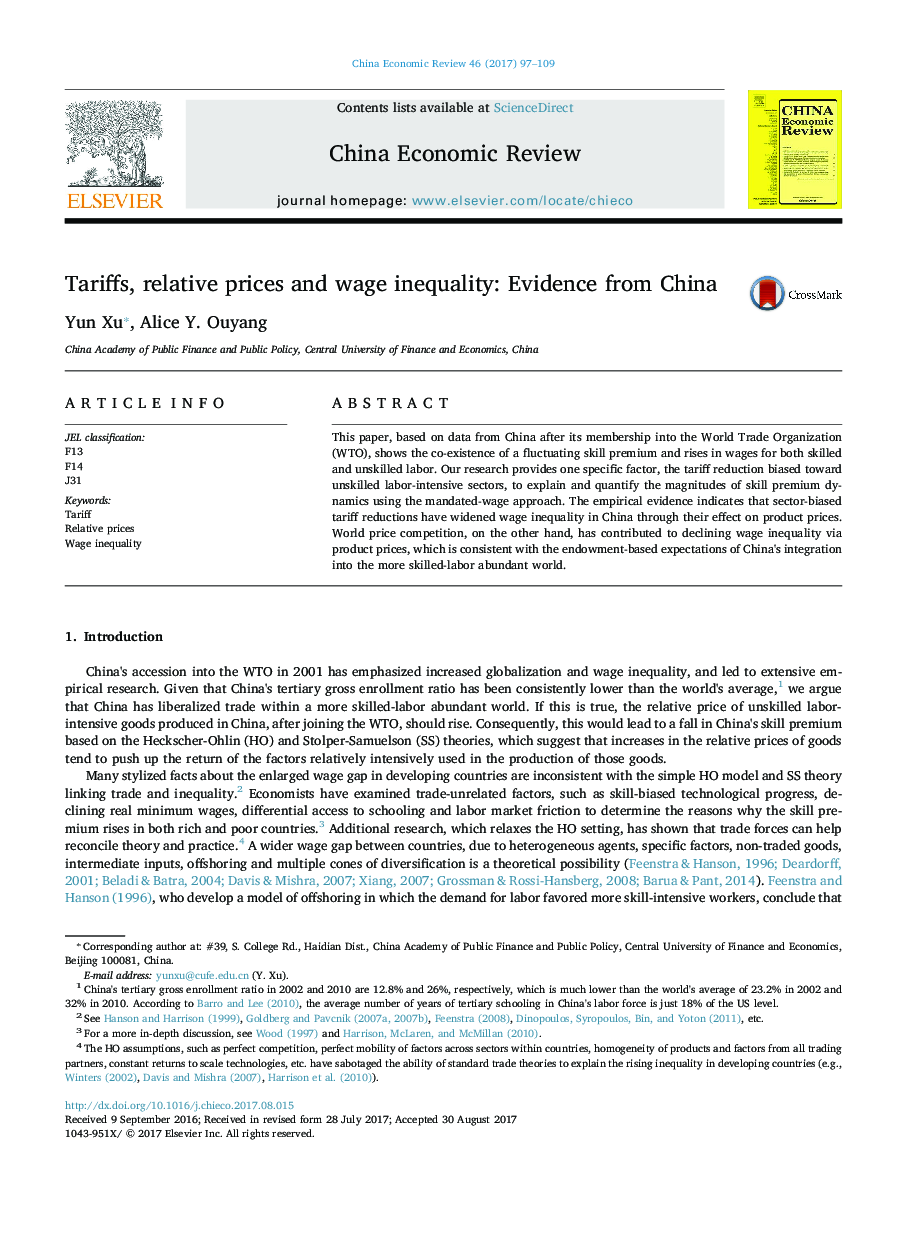| Article ID | Journal | Published Year | Pages | File Type |
|---|---|---|---|---|
| 5047161 | China Economic Review | 2017 | 13 Pages |
â¢The co-existence of fluctuating skill premium and rising wages after China's WTO membership.â¢Sector-biased tariff reductions have widened wage inequality.â¢Market- and industry-structural characteristics might change tariff pass-through rates.â¢World price competition has contributed to declining wage inequality.
This paper, based on data from China after its membership into the World Trade Organization (WTO), shows the co-existence of a fluctuating skill premium and rises in wages for both skilled and unskilled labor. Our research provides one specific factor, the tariff reduction biased toward unskilled labor-intensive sectors, to explain and quantify the magnitudes of skill premium dynamics using the mandated-wage approach. The empirical evidence indicates that sector-biased tariff reductions have widened wage inequality in China through their effect on product prices. World price competition, on the other hand, has contributed to declining wage inequality via product prices, which is consistent with the endowment-based expectations of China's integration into the more skilled-labor abundant world.
